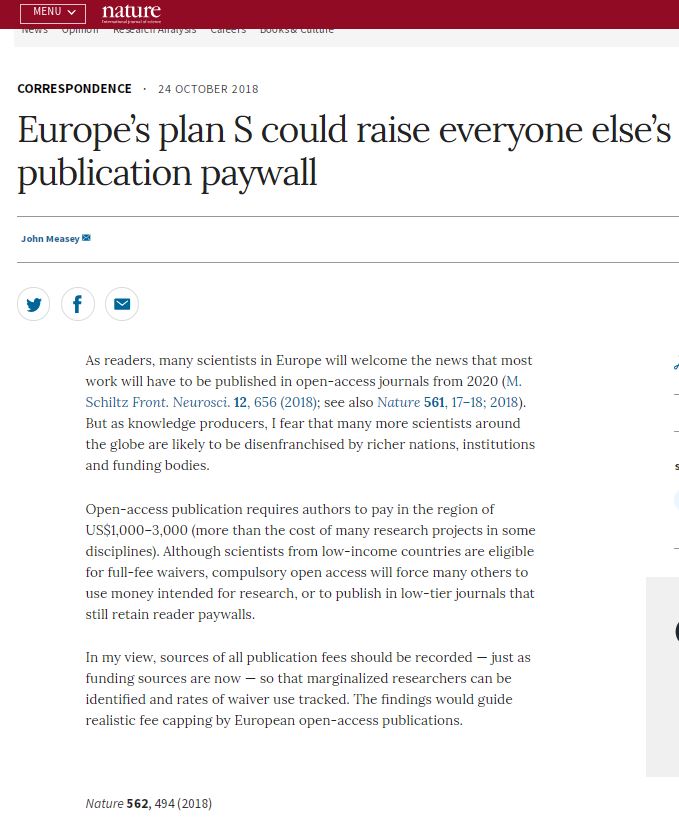Making Europe Open Access will only increase the height of the pay wall for everyone else
Many scientists in Europe will greet the news all authors will have to publish in Open Access journals from 2020 (M. Schiltz Front. Neurosci.12, 656; 2018 Nature 561, 17–18; 2018) with joy. But many more around the globe will be thinking of their future disenfranchisement by richer nations, institutions and funding bodies.
Open Access moves the payment hurdle before publication, requiring authors to find fees from $1000 to $3000, more than a lot of research. Scientists from low-income countries get full fee waivers (e.g. Hinari Eligibility). This leaves scientists from many other countries without fee support. Instead, publishing Open Access means using monies that were assigned for research.
There is an urgent need to begin recording the source of all publication fees, just as we now record the source of research funding. Knowing where those monies come from, will tell us who is marginalised. For example, PLoS publically declares spending 5% of income on fee waivers in 2016, but my calculations (using ISI PLoS publications for 2016) suggested that countries eligible for fee waivers only made up 1.1% of these costs. When asked PLoS declined to comment further, having no records of their fee waivers.
Looking forward to 2020, it is possible that even though fees may be capped on new and existing European Open Access publications, as long as there are still fees, scientists will be excluded from publishing. Worse, we will be forced to send our manuscripts to a lower tier of journals that retain pay walls. Science is a global responsibility, and when Science Europe move their own members forwards they risk disenfranchising others in countries that are already struggling to fund and publish their work in an increasingly costly publishing climate.
John Measey, Centre for Invasion Biology, Stellenbosch University, South Africa
An edited version of this letter appeared today in Nature:
In an examination of PLoS publications in 2016, I show that PLoS gave the majority of their waivers outside of their stated policy. Publications from their list of countries that receive waivers only acounted for 1.1%, while waivers are said to be given for 5% of publications. When I contacted PLoS about this, it turns out that they don't keep any record of when or why waivers are given. As someone who regularly asks for them, I know that they are often provided on an ad hoc basis. However, the bigger picture (especially for PLoS) is that these amount to large sums of money that are unaccounted for. When you add in the consideration that publication fees regularly exceed the cost of the research, the need for recording both where these monies originate, and waivers is clear.

